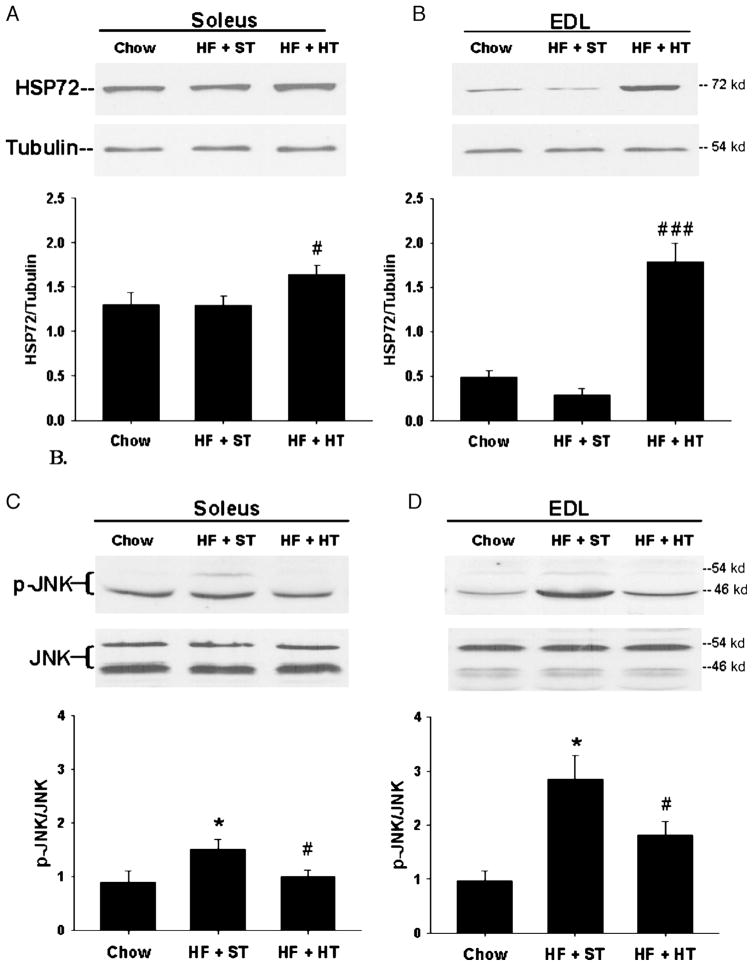Figure 3.
Heat treatment induces heat shock protein (HSP)72 expression and a concomitant c-Jun NH2-terminal kinase (JNK) inactivation. Soleus and extensor digitorum longus (EDL) muscles were dissected from chow, high fat (HF) + sham treatment (ST), and HF + heat treatment (HT) rats and snap frozen in liquid nitrogen. Lysates were subjected to Western blot analysis for HSP72/tubulin in soleus (A) and EDL (B) and for phosphorylation of JNK, (p)-JNK/JNK in soleus (C) and EDL (D) (*P < 0.05 HF + ST versus chow, ###P < 0.001, #P < 0.05 HF + HT vs HF + ST). Values are means ± standard error (SE) for 5–7 muscles per group. (Reprinted from Gupte AA, Bomhoff GL, Swerdlow RH, Geiger PC. Heat treatment improves glucose tolerance and prevents skeletal muscle insulin resistance in rats fed an HFD. Diabetes. 2009; 58:567–78. Copyright © 2009 American Diabetes Association. Used with permission.)

